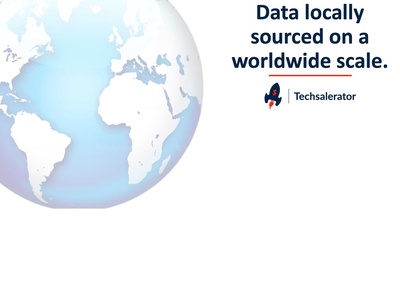Equity Market Data: Best Equity Market Datasets & Databases

- Overview
- Datasets
- Providers
- Use Cases
- Attributes
- FAQ
- Overview
- Datasets
- Providers
- Use Cases
- Attributes
- FAQ
What is Equity Market Data?
Equity market data is collection and dissemination of information related to the trading and performance of publicly traded stocks. It includes real-time and historical data on stock prices, trading volumes, bid and ask prices, market depth, and other relevant metrics. This data is crucial for investors, traders, and financial institutions to make informed decisions, analyze market trends, and assess the value and risk associated with specific stocks or the overall market.
Examples of Equity Market Data include stock prices, trading volumes, market indices, company financial statements, and historical price data. Equity Market Data is used by investors, traders, and financial institutions to analyze market trends, make investment decisions, and assess the performance of individual stocks or the overall market.
Best Equity Market Databases & Datasets
Here is our curated selection of top Equity Market Data sources. We focus on key factors such as data reliability, accuracy, and flexibility to meet diverse use-case requirements. These datasets are provided by trusted providers known for delivering high-quality, up-to-date information.

Global ETF Market Data | Equity Market Data | 9K ETF | 30 pricing sources

Africa & Middle East | Insider Trading Data | 25+ Years Historic Data | Stock Market Data | Public Equity Market Data for Investment Management

Global Private Equity (PE) Funding Data | Refreshed 2x/Mo | Delivery Hourly via CSV/JSON/PostgreSQL DB Delivery | Company Data

Private Equity (PE) Funding Data | Global Investment Professionals | Contact Details for Fund Managers | Best Price Guaranteed

Equity Analytics Global of 60 equity derived data fields | 17 years Historic Data | Equities traded in 144 global exchanges

Global Stock Market Data | Equity Market Data | 80K stocks | 150 pricing sources | Intraday Data

Stock Market Data Africa ( End of Day Pricing dataset )

TagX - Stock market data | End of Day Pricing Data | Shares, Equities & bonds | Global Coverage | 10 years historical data

Datatorq | Car Spec Data | Car Data | Car Specs, Equip & Price (Global)| Updated Monthly | Market Research
Vision Private Equity Data | US Consumer Transaction Data | 100M Accounts, 12K Merchants, 800+ Parent Companies, 600 Tickers
Can't find the data you're looking for?
Let data providers come to you by posting your request
/postings/new?utm_content=search_results_page&utm_medium=platform&utm_source=datarade
Top Equity Market Data Providers & Companies
Popular Use Cases for Equity Market Data
Equity Market Data is essential for a wide range of business applications, offering valuable insights and driving opportunities across industries. Below, we have highlighted the most significant use cases for Equity Market Data.
Main Attributes of Equity Market Data
Below, we outline the most popular attributes associated with this type of data—features that data buyers are actively seeking to meet their needs.
| Attribute | Type | Description | Action |
|---|---|---|---|
| String | The postal code of an address. | View 30 datasets | |
| String | The name of a company or business, might be the legal or brand name. | View 27 datasets | |
| String | The industry classification of a company. | View 21 datasets | |
| String | The LinkedIn profile of a company. | View 20 datasets | |
| String | The title of a job. | View 20 datasets | |
| String | The domain name of a company website. Potential ID to match company records. | View 18 datasets |
Frequently Asked Questions
How is the Quality of Equity Market Data Maintained?
The quality of Equity Market Data is ensured through rigorous validation processes, such as cross-referencing with reliable sources, monitoring accuracy rates, and filtering out inconsistencies. High-quality datasets often report match rates, regular updates, and adherence to industry standards.
How Frequently is Equity Market Data Updated?
The update frequency for Equity Market Data varies by provider and dataset. Some datasets are refreshed daily or weekly, while others update less frequently. When evaluating options, ensure you select a dataset with a frequency that suits your specific use case.
Is Equity Market Data Secure?
The security of Equity Market Data is prioritized through compliance with industry standards, including encryption, anonymization, and secure delivery methods like SFTP and APIs. At Datarade, we enforce strict policies, requiring all our providers to adhere to regulations such as GDPR, CCPA, and other relevant data protection standards.
How is Equity Market Data Delivered?
Equity Market Data can be delivered in formats such as CSV, JSON, XML, or via APIs, enabling seamless integration into your systems. Delivery frequencies range from real-time updates to scheduled intervals (daily, weekly, monthly, or on-demand). Choose datasets that align with your preferred delivery method and system compatibility for Equity Market Data.
How Much Does Equity Market Data Cost?
The cost of Equity Market Data depends on factors like the datasets size, scope, update frequency, and customization level. Pricing models may include one-off purchases, monthly or yearly subscriptions, or usage-based fees. Many providers offer free samples, allowing you to evaluate the suitability of Equity Market Data for your needs.
What Are Similar Data Types to Equity Market Data?
Equity Market Data is similar to other data types, such as Proprietary Market Data, Indices Data, Stock Fundamental Data, Intraday Stock Data, and Stock Price Data. These related categories are often used together for applications like Due Diligence and Company Valuation.





